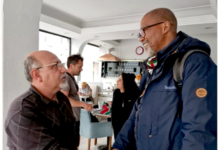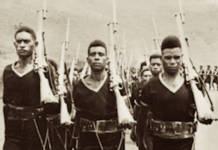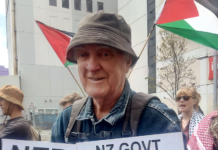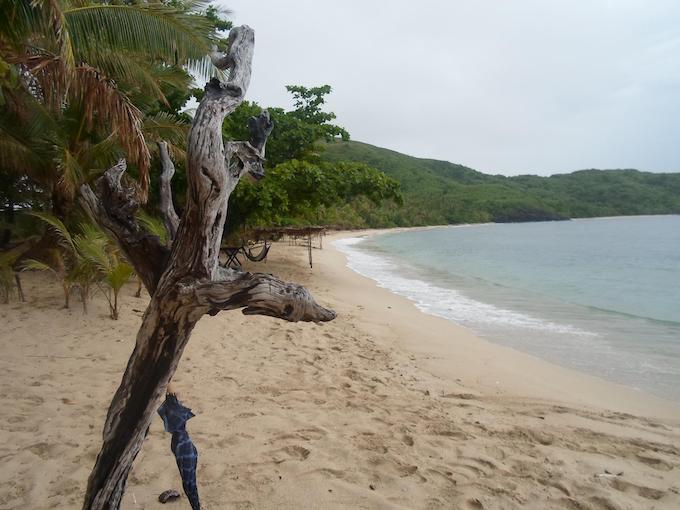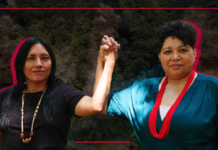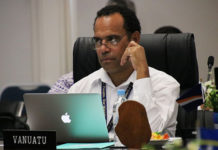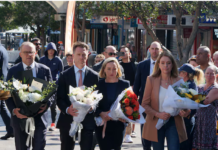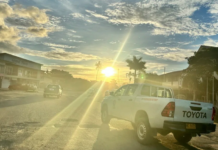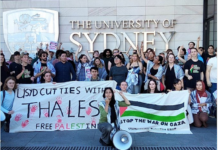By Ben Bilua in Suva
Experts have challenged the value of immediate implementation of tourism or travel “bubbles”, saying that it is too early to open the borders as the risk of covid-19 remains high.
In a recent meeting with journalists, chief executive officer of the South Pacific Tourism Organisation (SPTO), Chris Cocker, said the risk of covid-19 was still high in the Pacific with the level of health preparedness below what was needed.
“For example, the lack of ventilators in our countries and the testing capabilities in our islands,” he said.
READ MORE: Al Jazeera coronavirus live updates – Hong Kong braces for toughest ever covid curbs

“We have seen that the health and safety concerns in the Pacific nations outweigh the economic recovery concerns because realistically, the majority of our Pacific Island countries are just not ready and capable to address covid-19 if the borders are reopened in this case.”
The Association of South Pacific Airlines CEO, George Faktaufon, adds that at this stage, it is too early to reopen borders.
“We just don’t have the facilities to control such a pandemic in our islands,” he said.
Tourism and aviation are among the industries hardest hit by covid-19, with thousands of jobs lost and business revenue in freefall.
Urgent talks wanted
Faktaufon wants to see urgent talks between governments and airlines to make sure airlines survive the crisis.
While both executives are cautious about the dangers of moving too quickly to open borders, they say planning for a return to tourism must start now.
“For us, the planning is important because we just can’t pick up the aeroplanes and start flying when the borders open and we find this to be the most difficult part,” Faktaufon said.
Lack of regional co-ordination on some of the issues such as security requirements and quarantine requirement are aviation’s great concern, according to Faktaufon.
“How do we handle visitors as they come to the airport? In terms of security requirements, quarantine requirements in the absence of these important procedures,” he said.
Private sector leaders, such as the chairman of the Pacific Islands Private Sector Organisation (PIPSO), Stephen Lyon, are more optimistic that there are ways to open borders soon and keep people safe.
He and other private sector leaders warn the economic impact of covid-19 is already severe and will get much worse if countries do not act soon.
And he notes the damage from the lack of passenger flights is hurting well beyond the tourist industry as exporters see freight charges for the few remaining flights rise substantially.
Health impact threat
While Lyon recognises the threat of the health impacts of covid-19 are real, he warns the economic impacts are less visible and could last much longer.
Around the world commentators are predicting it could take a decade or even a generation to recover from the history-making economic damage being wrought by covid-related dislocation.
“We are a very remote part of the world and it will take us longer to recover economically than other places simply because of our limited market access and our remoteness,” he said.
Lyon sees the way forward in getting low-risk activities happening immediately – activities such as trade in goods (with proper safeguards), trade and movement of people in a Pacific bubble, including countries that have no covid-19 cases and even tourism with countries such as New Zealand or Australia (again with proper quarantine and safeguards)
“We have got to look at this idea of open borders and when we can get open borders for trade and get the movement of people and goods occurring again,” Lyon said.
“I see no reason why processes cannot be put in place relatively quickly and by that I mean a matter of weeks and months. (If there is) no community transmission open up for the movement of people and trade between covid-19 free states of the Pacific,” he said.
Important option
The president of the Fiji Commerce and Employers Federation (FCEF), Sandeep Chauhan shared a similar sentiment saying that reopening the border is an important option for leaders to decide.
He said the economic impact of covid-19 had been unforgiving and that respective states in the Pacific needed to get down to business with private sectors to keep the economy functioning.
Chauhan said there was a need for close collaboration between the private sector and respective governments to establish program and activities that would maintain the economy through small to medium business activities and initiatives.
Ben Bilua (Solomon Islands) is a final-year journalism student at University of the South Pacific’s Laucala campus. He is also the online student editor for Wansolwara, USP Journalism’s student training newspaper and online publications. The Pacific Media Centre has a partnership with Wansolwara.


